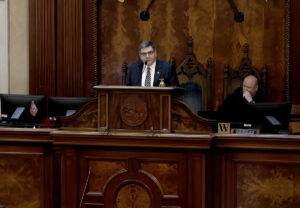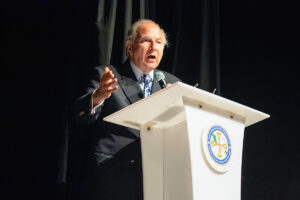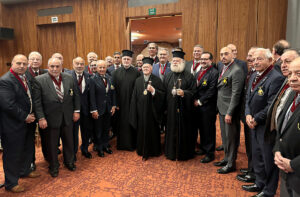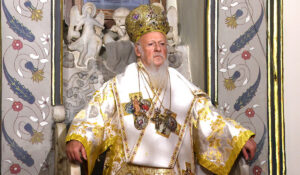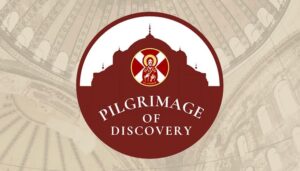Serious problems remain in the Turkish government to secure religious freedom for non-Muslim minorities. This was revealed in the 2007 Country Report, issued by the U.S. Department of State’s Bureau of Democracy, Human Rights, and Labor.
Published on March 10, 2008, the report elaborates on a number of issues facing the Turkish government in regards to their restrictions and limitations on Non-Muslim religious groups when practicing their religion openly, owning property, and training leaders. The report added that limitations on freedom of expression expanded to the Internet, as Turkish courts on several occasions ordered telecommunications providers to block access to Web sites.
Submitted to the U.S. Congress, many specifics outlined in the 2007 Country Report mention:
“The government did not recognize the ecumenical status of the Greek Orthodox Patriarch, acknowledging him only as the head of the country’s Greek Orthodox community. As a result, the government has long maintained that only citizens of the country could become patriarch, serve as members of the Greek Orthodox Holy Synod, and participate in patriarchal elections. Nevertheless, officials did not respond to the ecumenical patriarch’s appointment of six non-Turkish metropolitans to the Holy Synod in 2004. Members of the Greek Orthodox community asserted that these restrictions threatened the survival of the patriarchate in Istanbul, because, with no more than 4,000 Greek Orthodox persons remaining in the country, the community was becoming too small to maintain the institution.
“The law restricts religious services to designated places of worship. Municipal codes mandate that only the government can designate a place of worship; if a religious group has no legal standing in the country, it may not be eligible for a designated site. Non-Muslim religious services, particularly for groups that did not own property recognized by the GDF, often took place on diplomatic property or in private apartments. Police occasionally prohibited Christians from holding services in private apartments, and prosecutors sometimes opened cases against Christians for holding unauthorized gatherings.
“Many local officials continued to impose standards, such as minimum space requirements, on churches but not mosques.
“The Ecumenical Patriarchate in Istanbul continued to seek to reopen the Halki seminary on the island of Heybeli in the Sea of Marmara. The government closed the seminary in 1971, when the patriarchate chose not to fulfill a government requirement for all private institutions of higher learning to nationalize. The patriarchate found it impossible to comply with the order. Under existing restrictions, religious communities other than Sunni Muslims cannot legally train new clergy in the country for eventual leadership. Coreligionists from outside the country have been permitted to assume leadership positions in a few cases, but in general all religious community leaders, including patriarchs and chief rabbis, must be citizens.
“Numerous religious groups, particularly the Greek and Armenian Orthodox communities, have lost property to the government and continued to fight ongoing efforts by the government to expropriate properties. Many such properties were lost because the law allows the GDF to assume direct administration of properties that fall into disuse when the size of the local non-Muslim community drops significantly. The government expropriated other properties that were held in the name of individual community members who emigrated or died without heirs. The GDF also took control of non-Muslim foundations after the size of the non-Muslim community in a particular district dropped below the level required to elect foundation board members.
“In November Ministry of Environment and Forestry officials damaged a Greek Orthodox church on Heybeli Island as it was being restored. The officials claimed the restoration was illegal; however an investigation conducted by island authorities later determined the ministry officials acted independently and without cause.”
The U.S. Department of State report can be read in its entirety here:

